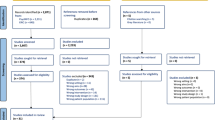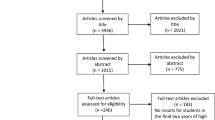Abstract
Black men have reported a number of stressful experiences during medical school training. Guided by Critical Race Theory, the authors examined the survey responses of 16 Black men who matriculated at one medical school to assess perceptions of medical school stress. The researchers identified several themes: (1) perceived academic inequities created tension between Black and non-Black medical students but provided bonding opportunities among Black male medical students, (2) stress negatively impacted academic performance and personal health, and (3) use of social support and spirituality contributed to coping and resiliency. For Black male medical students, the general stress of medical school can be compounded by additional race-related stress. Supporting the success of Black male medical students requires understanding perceived stressors, a focus on helping Black men build social and spiritual connections that contribute to resiliency, and active efforts at the organizational level to address perceptions of academic inequity.
Similar content being viewed by others
References
National Academies of Science, Engineering and Medicine. 2018. An American crisis: the growing absence of Black men in medicine and science: proceedings of a joint workshop. Washington, DC: The National Academies Press. https://doi.org/10.17226/25130.
Lent RW, Brown SD, Hackett G. Toward a unifying social cognitive theory of career and academic interest, choice, and performance. J Vocat Behav. 1994;45:79–122.
Association of American Medical Colleges. Altering the course: black males in medicine. Washington, DC: Association of American Medical Colleges; 2015. Available from https://members.aamc.org/eweb/upload/Altering%20the%20Course%20-%20Black%20Males%20in%20Medicine%20AAMC.pdf
Hill, M. "Medical School Admissions Process Argued in Court Rejected Candidate Blames Reverse Discrimination: FINAL Edition." The [Baltimore] Sun, 27 January 2001, p. 2B. https://search-proquest-com.jproxy.lib.ecu.edu/docview/406474632?pq-origsite=summon. Accessed 5 July 2018.
Regents of the University of California v. Bakke, 438 U.S. 265, 1978
Hopwood v Texas, 78 F3d 932 (5th Cir), cert denied, 116 SCt 2581, 1996
Grutter v Bollinger, 288 F3d 732 (6th Cir), cert granted, 123 SCt 617, 2002
Baker RB, Washington HA, Olakanmi O, et al. Creating a segregated medical profession: African American physicians and organized medicine, 1846-1910. J Natl Med Assoc. 2009;101:501–12.
Washington HA, Baker RB, Olakanmi O, et al. Segregation, civil rights, and health disparities: the legacy of African American physicians and organized medicine, 1910-1968. J Natl Med Assoc. 2009;101:513–27.
Davis RM. Achieving racial harmony for the benefit of patients and communities: contrition, reconciliation, and collaboration. JAMA. 2008;300:323–5.
Crenshaw K., et al., editors. Critical race theory: The key writings that formed the movement. New York: New Press; 1995.
Delgado R. Storytelling for oppositionists and others: a plea for narrative. Mich Law Rev. 1989;87:2411–41.
Solórzano DG, Yosso TJ. Critical race methodology: counter-storytelling as an analytical framework for education research. Qual Inq. 2002;8:23–44.
Pyne KB, Means DR. Underrepresented and in/visible: a Hispanic first-generation student’s narratives of college. J Divers High Educ. 2013 Sep;6(3):186–98.
Dyrbye LN, Thomas MR, Shanafelt TD. Medical student distress: causes, consequences, and proposed solutions. Mayo Clin Proc. 2005;80:1613–22.
Grbic D, Sondheimer H. Personal well-being among medical students: findings from an AAMC pilot survey. AAMC Analysis in Brief. 2014;14 Available from https://www.aamc.org/download/377520/data/april2014aib_personalwell-beingamongmedicalstudents.pdf.
Dyrbye LN, Thomas MR, Eacker A, et al. Race, ethnicity, and medical student well-being in the United States. Arch Intern Med. 2007;167:2103–9.
Odom KL, Roberts LM, Johnson RL, Cooper LA. Exploring obstacles to and opportunities for professional success among ethnic minority medical students. Acad Med. 2007;82:146–53.
Orom H, Semalulu T, Underwood W III. The social and learning environments experienced by underrepresented minority medical students: a narrative review. Acad Med. 2013;88:1765–77.
Dickins K, Levinson D, Smith SG, Humphrey HJ. The minority student voice at one medical school: lessons for all? Acad Med. 2013;88:73–9.
Thomas B, Manusov EG, Wang A, Livingston H. Contributors of black men’s success in admission to and graduation from medical school. Acad Med. 2011;86:892–900.
Schwarz N, Sudman S. Answering questions: methodology for determining cognitive and communicative processes in survey research. 1st ed. San Francisco: Jossey-Bass Publishers; 1996.
Smith JA, Osborn M. Interpretative phenomenological analysis. In: Breakwell GM, editor. Doing social psychology research. London: Sage; 2004. p. 229–54.
Lincoln YS, Guba EG. Naturalistic inquiry. Beverly Hills: Sage Publications; 1985.
Lazarus RS, Folkman S. Stress, appraisal, and coping. New York: Springer Pub. Co; 1984.
Germain CB, Gitterman A. Life model versus conflict model. Soc Work. 1987;32:552–3.
Ladson-Billings G. Critical race theory – what it is and what it is not. In: Lynn M, Dixson AD, editors. Handbook of critical race theory in education. New York: Springer; 2013. p. 34–7.
Author information
Authors and Affiliations
Corresponding author
Ethics declarations
Conflict of Interest
The authors declare that they have no conflict of interest.
Research on Human Participants
This study was approved by the University Medical Center Institutional Review Board.
Informed Consent
Informed consent was obtained from all individual participants included in the study.
Rights and permissions
About this article
Cite this article
Acheampong, C., Davis, C., Holder, D. et al. An Exploratory Study of Stress Coping and Resiliency of Black Men at One Medical School: A Critical Race Theory Perspective. J. Racial and Ethnic Health Disparities 6, 214–219 (2019). https://doi.org/10.1007/s40615-018-0516-8
Received:
Revised:
Accepted:
Published:
Issue Date:
DOI: https://doi.org/10.1007/s40615-018-0516-8




